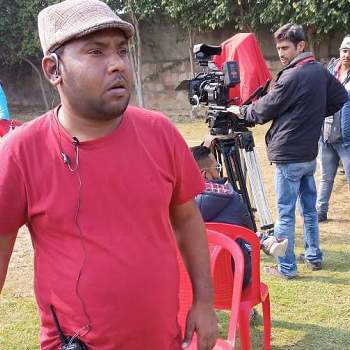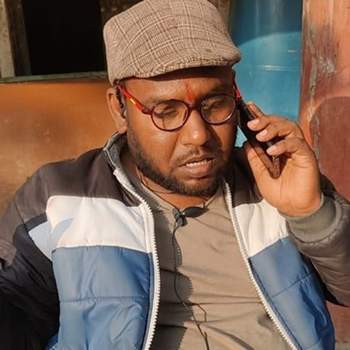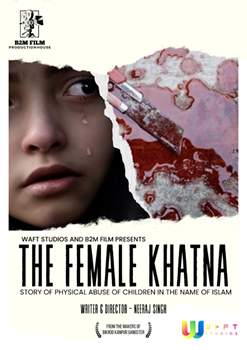In a chilling exposé of a deeply entrenched practice within certain Muslim communities, filmmaker and writer Neeraj Singh is set to release a short film ” The Female Khatna” that sheds light on the harrowing reality of female circumcision, also known as Khatna. This controversial practice, which involves the cutting of the private parts of young girls aged 9-10, is a stark reminder of the physical and mental anguish endured by countless women even today.
While many are aware of the male circumcision tradition within Muslim society, few realize that a similar ritual is inflicted upon young girls in certain communities. This practice is not only a violation of the body but also leaves deep psychological scars that persist throughout a woman’s life. Despite legal prohibitions and social condemnation, the practice continues in secrecy, upheld by religious leaders and community pressure.
Neeraj Singh, known for his bold storytelling and willingness to tackle sensitive issues, has spent extensive time researching the topic. He uncovered that the practice of female circumcision is particularly prevalent among the Dawoodi Bohra Muslim community. In this community, the ritual, referred to as Khafz, involves the removal of the clitoral hood and, in some cases, the entire external genitalia. The procedure is often carried out without anesthesia, leading to severe pain, trauma, and lifelong complications.
During his research, Neeraj spoke to numerous women who had undergone Khatna. These women, now in their 30s and 40s, shared their painful experiences with him, recounting the lasting impact on their physical and mental health. Many described how they continue to suffer during sexual intercourse, enduring the pain inflicted upon them in childhood. The stigma associated with not being circumcised further exacerbates their suffering, as uncircumcised women are often shunned within their communities and face difficulties in finding marriage partners.
Neeraj revealed that these women confided in him under the condition of anonymity, fearing retribution from their communities. They spoke of the immense social pressure to conform to this practice, with circumcised women being regarded as pure and virtuous, while those who escape the ritual are ostracized and deemed unworthy.
While the practice of female circumcision is not widespread across India, it continues to thrive in pockets of certain Muslim communities, particularly among the Dawoodi Bohra. Despite growing awareness and efforts to curb the practice, it remains deeply rooted in tradition and religious belief, perpetuated by those who claim it is a necessary rite of passage.
Neeraj Singh’s short film aims to bring this hidden reality to the forefront, challenging societal norms and sparking conversations about the rights and dignity of women. The film, which is being produced for the International Film Festival circuit, will also be released on several major OTT platforms, ensuring it reaches a global audience.
In speaking about the project, Neeraj emphasized the importance of exposing the truth and giving a voice to the voiceless. “This is not just a film; it’s a statement against a barbaric practice that has no place in modern society. These women have suffered in silence for too long, and it’s time the world hears their stories,” he said.
By bringing this issue to the screen, Neeraj hopes to inspire change and encourage communities to abandon harmful traditions that violate human rights. His film is not just a condemnation of female circumcision, but also a call to action for society to protect the most vulnerable members—young girls who deserve to grow up free from fear and pain.
As the film prepares for its international debut, it is poised to make a significant impact on audiences and ignite a much-needed dialogue on the subject. Neeraj Singh’s courage in tackling such a sensitive and controversial issue is commendable, and his work is a powerful reminder of the role of art in challenging societal injustices and advocating for change.




Neeraj Singh’s Upcoming Short Film To Expose The Dark Reality Of Female Khatna In Muslim Communities